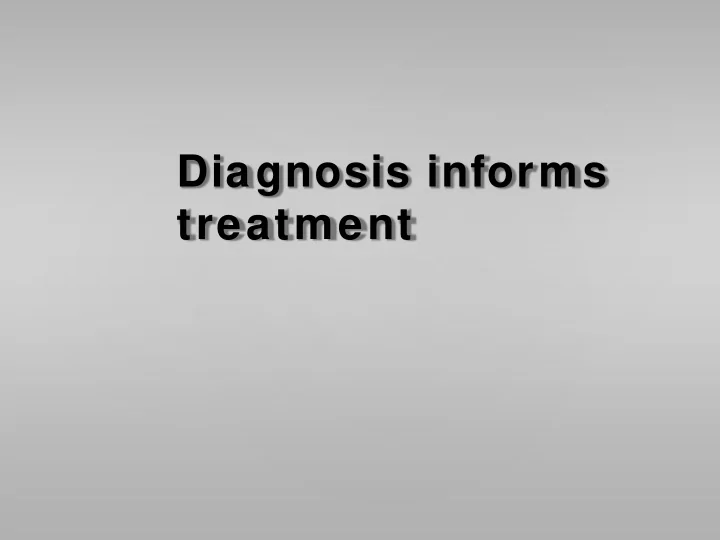

Diagnosis informs treatment
Man stays up all night rocking cat to sleep McDonald’s Offers Bereavement Prices Company is “proud” to support its customers in their darkest hour of sorrow The American Psychiatric Association recommends ECT as a first-line treatment for mild depression “for patients w ho prefer it”
APA also recommends antidepressants as a front-line treatment for all levels of depression –even mild depression Approximately 80% of prescriptions { for ADs are written by non- psychiatrist physicians Cascade, et. al., 2008
Do ADs “work”? If so for whom? What does the evidence tell us?
“Given these data there seems little evidence to support prescription of ADM to even the most severely depressed patients unless alternative treatments have failed to provide benefit” Kirsch et. al 2008 Used FOIA to obtain published and unpublished data
“Efforts should be made to clarify to clinicians and prospective patients that….there is little evidence to suggest that [antidepressants] produce specific pharmacological benefit for the majority of patients with less severe acute depressions” Fournier et al 2010
How are these meta-analyses interpreted in APA’s guideline? “Response rates in clinical trials typically range from 50-75% of patients, with some evidence suggesting greater efficacy relative to placebo in individuals with severe depressive symptoms as compared to those with mild to moderate symptoms”
Antidepressant medication is recommended as an initial treatment choice for patients with mild to moderate major depressive disorder APA, 2010, p.17
Financial ties to industry were disclosed by all members (100%) of the APA’s guideline development committee with members reporting a mean 20.5 relationships to drug companies that manufacture antidepressants The majority of the guideline authors served on speakers bureaus (“KOLs”)
What do less conflicted CPGs recommend for MDD? NICE addresses the harm/benefit issue regarding the primacy of pharmacotherapy and explicitly states that antidepressant medication should not be the first line choice { for individuals with mild depression Recent Dutch guidelines recommend antidepressants as first-line treatment only in cases of severe depression
“ Do not use antidepressants routinely to treat persistent subthreshold depressive symptoms or mild depression because the risk –benefit ratio is poor” NICE, 2010
U.S. U.K. SP ND Lifestyle * X X X Low-Intensity Psychological** X X X Psychotherapy X X X X Antidepressant Medication X Psychotherapy Plus X Medication Other Somatic Therapies X Recommendations for Mild Depression: Step 1 *CPG recommends that, “If a patient with mild depression wishes to try exercise alone for several weeks as a first intervention, there is little to argue against it” (p. 30) e.g., guided self help; computerized CBT Wheeler, Kosterina, & Cosgrove, 2013
APA recommends augmentation with APs for all levels of depression (even mild) for patients who show no or limited improvement after 4 weeks. The most recent CPGs from the UK (NICE), Spain, and the Netherlands do not recommend augmentation with APs.
These findings suggest that FCOI may function subtly, but powerfully, to shift the direction of the research, focusing on interventions that are the most commercially attractive but that do not necessarily represent the best science.
Recommend
More recommend